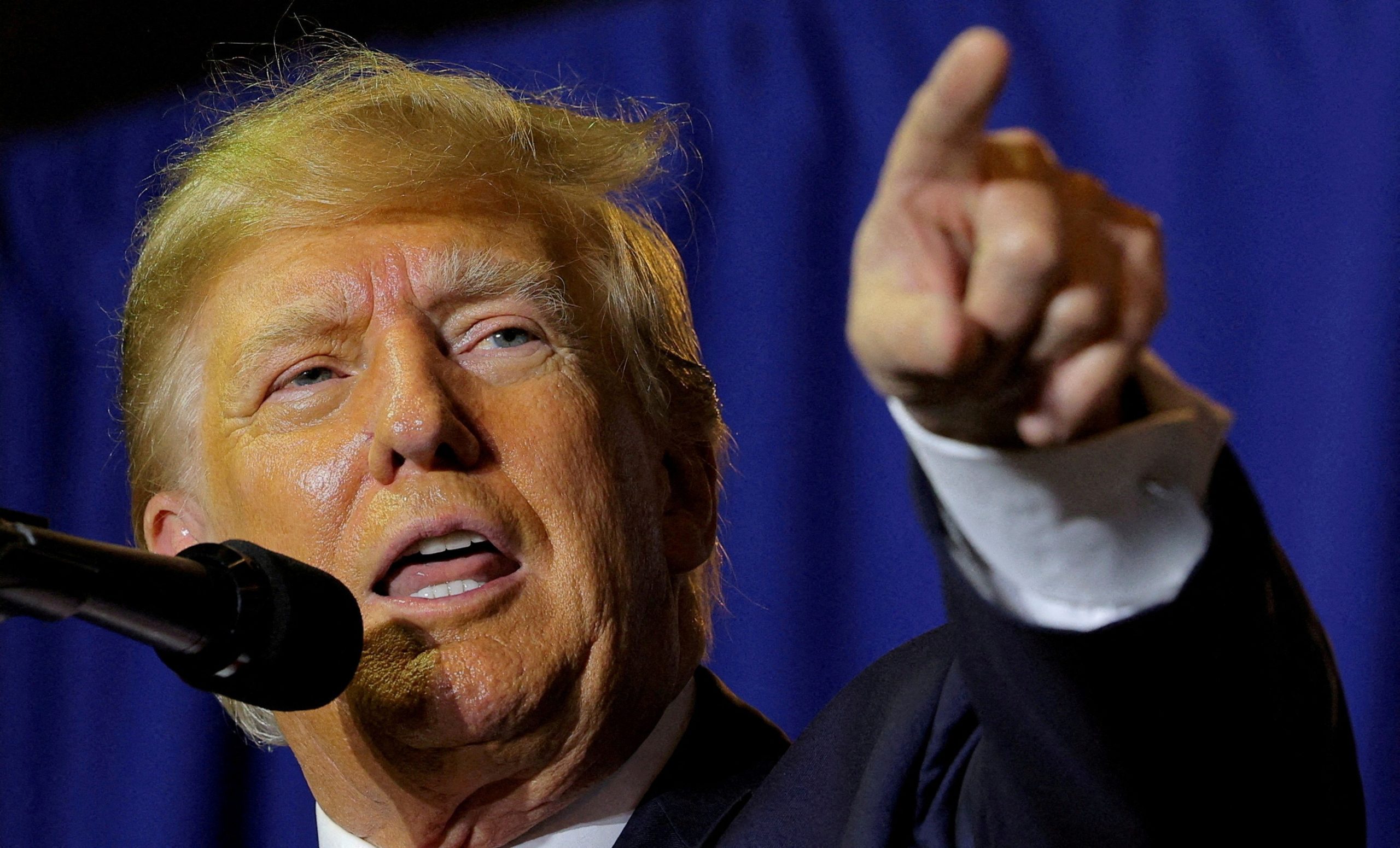Special counsel Jack Smith used a routine legal filing on Friday to issue a strong public response to Donald Trump’s allegations that his criminal prosecution, involving the alleged hoarding of classified documents, has been tainted by political bias and legal impropriety.
The 68-page document, submitted to U.S. District Judge Aileen Cannon, began by addressing what Smith’s team considered false assertions made by the former president about the nature of the case.
The prosecutors argued that it was crucial to set the record straight on the underlying facts leading to the prosecution, as Trump’s misstatements could leave a highly misleading impression.

Donald Trump (Newsweek)
The filing provided an extensive account of the events, leading prosecutors to suspect that Trump had accumulated classified records at his Mar-a-Lago estate.
Contrary to Trump’s depiction of a partisan witch hunt, the document portrayed federal officials from the National Archives, the intelligence community, and the White House counsel’s office taking measured and incremental steps to retrieve the documents.
The prosecutors highlighted that these actions were often coordinated with some of Trump’s designated advisers before escalating the matter as the former president continued to resist.
The approach taken in the legal brief was somewhat unconventional for the Justice Department, resembling at times an opening argument to a potential jury or the first chapter of a report meant to detail investigative findings to the public.
The primary focus of the prosecution’s brief was countering the demands by Trump and his co-defendants, Walt Nauta, and Carlos DeOliveira, for access to a wide range of documents from various government agencies, claiming they could be useful in defending their clients.
The defense attorneys sought to consider massive executive branch agencies and the White House as extensions of Smith’s prosecution team, potentially opening their files to defendants, a move contested by the prosecutors.
The filing included new details about the origins of the probe, particularly Trump’s liaisons to the National Archives engaging in a dialogue with key White House officials on how to facilitate the return of missing documents.
Contrary to Trump’s portrayal of the Biden White House’s involvement as politically motivated, Smith’s team characterized it as limited, necessary, and known to Trump’s aides, who did not protest.
Throughout the document, the prosecutors emphasized that Trump’s claims of a monolithic “Biden administration” acting against him were unfounded. They highlighted that career officials from multiple agencies, acting on their discrete responsibilities, took standard and even innocuous actions to fulfill their duties.
The brief also presented factual claims portraying Trump’s behavior as more serious and egregious.
When discussing the defense’s request for more information from the Secret Service, prosecutors asserted that the interaction underscored Trump’s recklessness in keeping a large volume of classified information at his Florida home, Mar-a-Lago, which serves as a social club and a site for political and social events.
Overall, the filing aimed to provide a comprehensive rebuttal to Trump’s narrative, clarifying the facts of the case and challenging the former president’s assertions of political bias and impropriety in his criminal prosecution.























